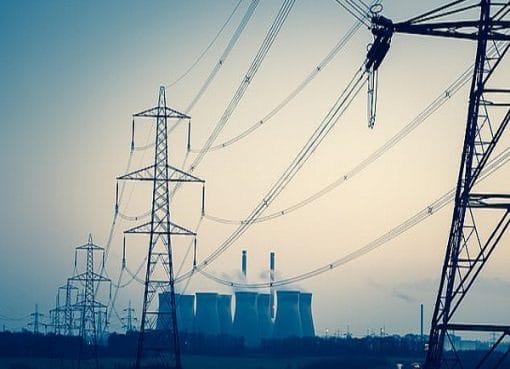In every economy, deregulation comes with various modes of payments for goods and services. Little wonder stakeholders in the electricity value chain, especially thermal plants operators, are seeking a review of the price of the product. This, no doubt, would impact positively on their operation and the sector.
Like a recurrent decimal, issues, such as inadequate supply of gas to thermal plants and poor gas pricing, have continued to recur in the power industry.
Hardly does any forum pass without the issues being discussed. Notably, is the issue of poor pricing of gas, a feedstock for electricity generating plants.
Data show that about 30 per cent of electricity supply comes from hydro power plants while the balance comes from thermal plants that are powered by gas.
This is coupled with the fact that the price of gas is benchmarked at the international market, a development, which is attributed to the instability of the price of the product.
Investigation reveals that gas is sold to Nigeria’s power generating firms at between $2.50 and $4 per million British thermal unit (mmBTU), a situation, which has given rise to poor accessibility of the product by power firms.
This, among others, made stakeholders to demand full implementation of “Willing Buyer and Willing Seller” system, on the use and sale of gas.
Earlier, the Federal Government had introduced the concept of willing buyers and willing sellers in the gas market to encourage economic growth, and boost the power sector, which uses gas for the production of electricity.
However, the idea has since suffered implementation, a development that made gas users, especially power sector operators, to revisit the issue of gas purchase and availability again. Recently, stakeholders expressed their desires to make the government fully implement the willing buyer, willing seller concept called in the industry.
According to stakeholders, the sector can only move forward, once the power plants are able to purchase gas from suppliers and producers on a willing buyer and willing seller basis. Therefore, there is the need to examine the views/ suggestions and the way forward to the problem as canvassed by the stakeholders.
International prices of gas
The Federal Government had many years ago announced that natural gas would be made available to industrial users, especially power plants at $2.50/mmBTU. However, many of the electricity generation companies are not always buying the product at that price.
Association of Power Generation Companies (APGC) Executive Secretary Joy Ogaji said gas price is normally $2.50, as it is regulated internationally.
She, however, said the price fluctuates in response to the vagaries of the market, adding the price ranges from $2.50 to $4 and power generators pay 80 cent for transportation.
This, she said, was a problem to the GenCos as they buy gas at exorbitant prices, adding that the government could help resolve the problem by creating a conducive environment for GenCos and other operators in the sector.
Generating companies’ problems
The industry boasts of about 30 electricity generation companies. Of this, thermal plants operators form the largest percentage. Ogaji said there were issues confronting the firms, adding that the problems affected their performance.
Besides, the rise in the prices of gas, which in most cases has compounded the woes of the sector, the GenCos, Ogaji said, were facing operating in a bad environment.
According to her, there is no effective contracts between the parties that are involved in the generation of electricity. She listed the parties to include thermal operators, plants and gas suppliers.
She said the grid has suffered collapse on several occasions, stressing that when such things happen, the power generation firms are at the receiving end.
Ogaji said: “GenCos lose between 15 per cent and 20 per cent of their gas whenever there is grid collapse in the country. When this happens, power firms would be forced to use gas meant for production of 50 megawatts (Mw) for 10Mw of electricity. How can power firms make up for the loss.’’
Tariffs
Ogaji said there is tariff on gas used in generating electricity, adding that the tariff does not take off the inefficiency of the national grid. Besides, the Value Added Tax (VAT) does more harm than good for power firms, which rely on gas for production of electricity.
“VAT is 7.5 per cent. What it means is that the companies must pay the VAT on gas, if they want to operate well,’’ she said.
Gas suppliers to power plants
While the Federal Government has left the exportation of natural gas to NLNG, it is magnanimous enough to leave certain percentage of gas for domestic consumption. This is the main reason the government allows International Oil Companies(IOCs) to be supplying gas to thermal plants.
According to former NLNG Managing Director, Dr Godswill Ihetu, oil majors have been providing natural gas for power companies.
Other stakeholders
The pioneer Chief Executive officer, Nigerian Liquefied and Natural Gas (NLNG), Dr Godswill Ihetu, said there had been complaints in the gas sector for a long period. The complaints, he said, border on the rising price of gas, shortage of the product, among others.
He said some of the problems were not genuine, others are real. He said: “Problems, such as inability by the power generation firms to access gas for production due to its rising prices are genuine. But I can tell you that there is gas in the country. Remember that Nigeria has proven gas reserves of 200trillion standard cubic feet and 600 trillion standard cubic feet of unproven gas reserves.
‘’Of this, what percentage of the volume has been explored? Quite insignificant,’’ he added. There is gas in the country. The only problem is price. There is enough gas in the Niger Delta region. How does NLNG get gas for its Train 1,2,3,4,5,6 and the 7, which is about to take off? So, it is a lie that there is no gas for domestic and international users. I can authoritatively say there is enough gas for power plants.
Once the Federal Government can deregulate the gas market, there would be willing buyer and willing seller of the product and the better for the power sector. He added that the issue of willing buyer, willing seller is the way out of problems caused by increase in the price of gas in the market.
Similarly, the Director, Centre for Energy Studies, University of Port Harcourt, Prof Wummi Iledare, said the willing buyer, willing seller system will enable power firms to operate optimally, if it is well implemented.
He said the issue of willing buyer and willing seller must be the goal of the Federal Government in the sector, if there is going to be growth in the long term.
“There must be holistic reform of the oil and gas sector, a development, which would take into recognition of principle of Willing Buyer and Willing Seller “in order to encourage the growth of the petroleum, power and other sectors of the economy.
Source: The Nation










